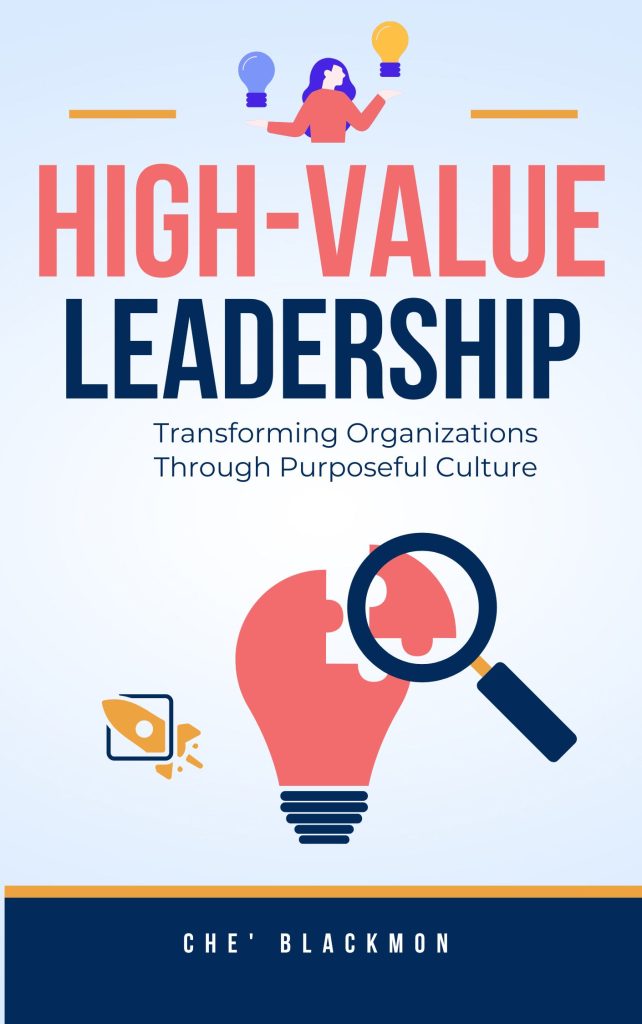Your cart is currently empty!
In the complex landscape of corporate America, Black women navigate a uniquely challenging terrain. We face barriers that are both visible and invisible, spoken and unspoken. One of the most insidious manifestations of these barriers emerges when Black women achieve compensation parity with their male counterparts. What should be a moment of equity instead becomes a catalyst for subtle—and sometimes not so subtle—backlash.
The Uncomfortable Reality of Compensation Parity
The data tells us a stark story: According to the National Women’s Law Center, Black women earn just 63 cents for every dollar earned by white, non-Hispanic men. This pay gap represents one of the widest among all demographic groups in the American workforce. Logic would suggest that closing this gap would be universally celebrated as progress toward equity.
Unfortunately, my experience and the experiences of countless Black women leaders tell a different story.
During my tenure as an HR executive at a major corporation, I achieved something that should have been unremarkable: compensation comparable to my male peers at the same leadership level. However, when this information became known among my male colleagues (both white and Black), their behavior toward me shifted dramatically. Suddenly, I found myself being asked to handle administrative tasks like ordering food for meetings—tasks that none of my male counterparts at the same level were expected to perform. Resources were inexplicably pulled from my department while my strategic responsibilities increased, creating an untenable workload designed to set me up for failure.
This experience illustrates what I call the “compensation correction backlash” in my book, “Rise & Thrive: The Black Woman’s Blueprint for Leadership Excellence.” It’s the phenomenon where achieving pay equity doesn’t lead to being treated as an equal, but instead triggers responses designed to reinforce hierarchy in other ways.
Understanding the Psychological Underpinnings
To navigate this challenge effectively, we must first understand what drives it. Research in organizational psychology suggests that these reactions stem from deeply held, often unconscious beliefs about status and hierarchy.
Dr. Robert Livingston, a Harvard Kennedy School professor and author of “The Conversation: How Seeking and Speaking the Truth About Racism Can Radically Transform Individuals and Organizations,” explains that “when historically marginalized groups achieve parity with traditionally dominant groups, it can trigger status anxiety in those who have benefited from existing hierarchies.”
In simpler terms, when a Black woman earns as much as her white male colleagues, it challenges the unspoken expectation that she should occupy a lower rung on the organizational ladder. The microaggressions that follow—assigning menial tasks, questioning decisions, withholding resources—are attempts to reinstate the “natural order” that has been disrupted.
This dynamic is further complicated by what sociologists call the “quota mentality”—the unspoken but widely practiced concept that there can only be a limited number of Black women in leadership positions. As I discuss in “Mastering a High-Value Company Culture,” many organizations unconsciously operate with the belief that one or two Black women in leadership is sufficient or even progressive, while three or more constitutes a threatening shift in power dynamics.
The Double Bind: Navigating Compensation Conversations
This reality creates what researchers call a “double bind” for Black women. If we advocate for fair compensation, we risk triggering backlash. If we accept less than we deserve, we perpetuate systemic inequities and undervalue our own contributions.
The challenge intensifies during compensation negotiations and reviews. Black women must find the delicate balance between assertive self-advocacy and navigating stereotypes about being “difficult” or “aggressive.”
Case Study: The Strategic Approach
Consider the experience of Janelle, a marketing executive at a consumer goods company. When Janelle learned that her compensation was significantly below that of her peers, she prepared for a challenging conversation with her white male supervisor.
Rather than focusing solely on equity and fairness (though these were central to her concerns), Janelle strategically framed her request around value contribution and market rates. She compiled data on:
- The revenue impact of campaigns she had led
- Cost savings her initiatives had generated
- Market compensation rates for her position and experience level
- Her expanded responsibilities compared to her original job description
By focusing on business outcomes and market standards rather than personal deservingness, Janelle successfully secured a significant adjustment. However, she also proactively prepared for potential backlash by:
- Building a broad base of internal allies before the adjustment took effect
- Documenting all her strategic contributions meticulously
- Establishing regular check-ins with her supervisor to maintain visibility for her strategic work
- Creating a narrative about her value that key stakeholders could readily repeat
This multi-faceted approach helped Janelle weather the subtle shifts in how she was perceived after her compensation adjustment. While she still encountered some microaggressions, her preparation minimized their impact on her role and reputation.

Practical Strategies for Navigating Compensation-Triggered Microaggressions
Drawing from my experience as an HR executive and organizational consultant, here are actionable strategies for Black women facing backlash after achieving compensation parity:
1. Document Everything
Create a detailed record of your contributions, achievements, and the evolution of your responsibilities. This documentation serves multiple purposes:
- It provides concrete evidence of your value during performance discussions
- It creates a reference point if your responsibilities inappropriately shift
- It helps identify patterns of microaggressions that might otherwise be dismissed as isolated incidents
Action step: Maintain a weekly accomplishment log that captures quantitative and qualitative impacts of your work.
2. Establish Clear Role Boundaries
When inappropriate tasks are assigned, respond with strategic redirection:
“I’d be happy to identify the right resource for ordering lunch, but my focus needs to remain on the strategic initiative we discussed yesterday that impacts our Q3 goals.”
Action step: Create and share a document outlining your key strategic responsibilities and how they align with organizational objectives.
3. Build a Strategic Support Network
As I emphasize in “High-Value Leadership,” Black women need more than just mentors—we need sponsors and allies who can advocate for us in spaces where decisions are made.
Action step: Identify at least three senior leaders who can speak to your contributions and value. Regularly update them on your achievements and challenges.
4. Master the Art of Strategic Visibility
When resources are pulled or your strategic role is diminished, increase your visibility among key decision-makers.
Action step: Request opportunities to present your work directly to senior leadership. Volunteer for cross-functional initiatives that showcase your strategic capabilities.
5. Consider External Validation
External recognition can be a powerful counterbalance to internal attempts to diminish your value.
Action step: Pursue speaking engagements, industry awards, and publication opportunities that validate your expertise beyond your organization’s walls.
The Organizational Imperative: Creating High-Value Cultures
While individual strategies are essential, lasting change requires organizational transformation. In “Mastering a High-Value Company Culture,” I outline how organizations must address these issues systemically:
- Implement transparent compensation practices that reduce subjective elements where bias can flourish
- Create accountability measures for leaders who demonstrate patterns of assigning inappropriate tasks based on gender or race
- Audit resource allocation to ensure it aligns with strategic priorities rather than unconscious biases
- Train leaders specifically on the unique challenges facing Black women and other underrepresented groups
- Establish clear metrics for inclusion that go beyond representation numbers to measure experience quality
Organizations that fail to address these issues don’t just harm individual careers—they undermine their own performance. McKinsey’s research consistently shows that companies in the top quartile for gender and ethnic diversity are 25% more likely to achieve above-average profitability.
The Entrepreneurship Alternative
It’s worth noting that the challenges described above contribute to a significant trend: Black women represent the fastest-growing demographic of entrepreneurs in America. According to the 2019 State of Women-Owned Businesses Report, the number of businesses owned by Black women grew by 50% between 2014 and 2019—a rate more than double that of women-owned businesses overall.
This statistic reflects both the barriers Black women face in traditional corporate environments and our resilience in creating alternative paths to leadership and economic empowerment. As I often say, “If they won’t make room at the table, build your own table—and make it beautiful.”
Finding Power in Awareness
Understanding these dynamics isn’t about fostering hopelessness—it’s about clear-eyed strategic planning. The compensation correction backlash is real, but it is not insurmountable. By recognizing these patterns, Black women can develop effective strategies for maintaining their hard-won gains while continuing to advance.
The journey of Black women in corporate America reflects what Vice President Kamala Harris has faced on the national stage—where despite exceptional credentials and capabilities, our competence is questioned in ways that far exceed normal professional critique. The “Kamala Harris effect,” as I describe it in my work, mirrors what happens to Black women leaders across sectors when they achieve positions traditionally reserved for others.
The backlash against Black women’s advancement reflects what Roland Martin explores in “The Browning of America”—a deep-seated anxiety about shifting power dynamics in a changing demographic landscape. This understanding helps us recognize that the microaggressions we face aren’t personal failures but manifestations of broader societal tensions.
Moving Forward: Questions for Reflection
- For Black women: How have you experienced shifts in treatment after achieving compensation parity or promotion? What strategies have proven most effective in maintaining your strategic positioning?
- For organizational leaders: What systems might be enabling compensation-triggered microaggressions in your organization? How could you create more transparent accountability around task assignment and resource allocation?
- For allies: How can you support Black women colleagues experiencing these dynamics without overstepping or undermining their agency?
Working with Che’ Blackmon Consulting
At Che’ Blackmon Consulting, we specialize in helping organizations build high-value cultures where everyone can thrive authentically. Our approach combines evidence-based strategies with practical implementation tools designed to create lasting change.
For Black women leaders, we offer executive coaching programs specifically designed to navigate challenges like compensation-triggered microaggressions while preserving your authentic leadership style.
For organizations, we provide comprehensive cultural transformation services that address the systemic barriers preventing full inclusion and equity.
To learn more about working with Che’ Blackmon Consulting to unlock potential, empower leadership, and transform your organization, contact us at admin@cheblackmon.com or 888.369.7243, or visit https://cheblackmon.com.
Remember: Your value isn’t diminished by others’ reactions to it. By combining strategic awareness with purposeful action, you can continue to rise and thrive—despite the unique challenges faced by Black women in leadership.
#BlackWomenInLeadership #PayEquity #CorporateDiversity #CompensationGap #Microaggressions #DEI #WomenInBusiness #LeadershipStrategies



6 responses to “The Black Woman’s Dilemma: When Your Salary Triggers Microaggressions from Male Colleagues”
https://shorturl.fm/5JO3e
https://shorturl.fm/j3kEj
https://shorturl.fm/m8ueY
https://shorturl.fm/a0B2m
https://shorturl.fm/TbTre
https://shorturl.fm/YZRz9